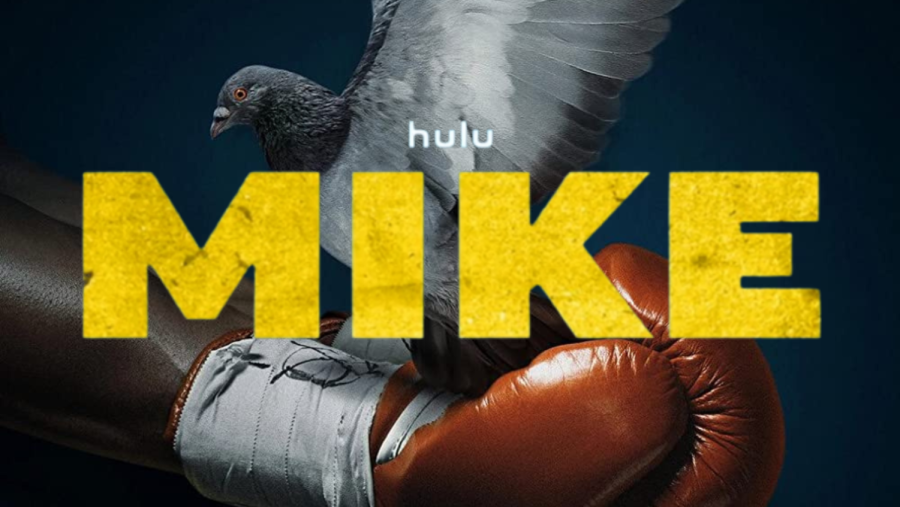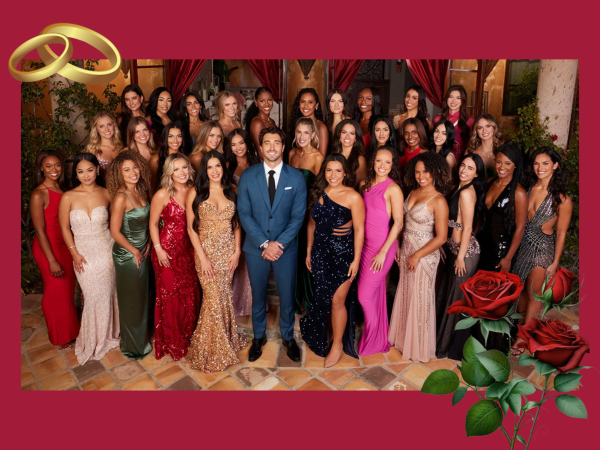Mike: A flawed yet cohesive portrayal of Mike Tyson’s story
Before airing its first episode August 25, the Hulu-original “Mike” faced severe backlash from the man who inspired its creation. Mike Tyson went on social media to complain about the new biopic series, as he received no compensation from producers or involvement in the show. However, the show portrays Tyson’s story in a creative way through its use of editing and direction.
October 5, 2022
Mike Tyson, known for his time as a heavyweight world champion with a staggering record of 50 wins and 6 losses, recently stirred controversy with Hulu over their portrayal of the renowned boxer. Over the years, several movies and documentaries such as “Tyson” told the life of the former world champion. However, Hulu’s new biopic series about him titled “Mike” differs from its predecessors as Tyson possessed no direct involvement in the show’s creative process. Due to his lack of compensation or involvement, Tyson publicly despises the 8-episode series and even labeled Hulu as the “streaming version of the slave master”.
“Don’t let Hulu fool you. I don’t support their story about my life. It’s not 1822. It’s 2022. They stole my life story and didn’t pay me. To Hulu executives I’m just a [expletive deleted]on the auction block,” Tyson said.
As for the show itself, it unfolds the life of Tyson from his upbringing to his numerous victories and controversies but does so in a creative manner. In the biopic, Trevante Rhodes stars as Mike Tyson and plays a phenomenal role as the former heavyweight champion. Throughout “Mike”, it fades back and forth between the retelling of his life and an actual broadway show Tyson performed in, “Mike Tyson: Undisputed Truth”. Rhodes reenacts certain moments of “Undisputed Truth” as narration for the limited series and it pays tribute to Tyson despite his recent comments.
“Mike”, written by “I, Tonya” screenwriter Steven Rodgers, takes various other creative routes that separate itself from the average biopic format. For example, its use of the fourth wall breaks where Tyson looks straight at the camera and addresses the audience leaves a powerful mark on the fluidity of the show. When showcasing the fights he won, the directors chose to keep the scenes short with the boxer throwing one punch in and the fight subsequently ending. However, when he lost a fight, the scene would become slowed down and he would miss several punches until he eventually lost or fell down due to weakness. Directors of the show knew that he used to knock his opponents out quickly, so using this tactic in direction emphasized how he dealt with loss and left screen time to present his fights outside of the boxing arena.
The highlight of the entire show does not even revolve around Tyson or his colleagues around him. Rather, episode 5 titled “Desiree” remains one of the best television portrayals of a sexual assault case in recent history. Instead of the heavyweight champion narrating his own story, Desiree Washington, played by Li Eubanks, tells her story about Tyson and how he took advantage of her through a similar use of fourth wall breaks and a powerful voice. Tiffany Johnson directed the episode and took creative paths that showcased Washington’s innocence, including the decision to show her walking to his car and immediately transitioning the scene to her walking in a hospital, telling doctors Tyson raped her. Without becoming too explicit or triggering for sexual assault survivors watching, immediately after the rape occurred Tyson looked straight into the camera asking viewers if they loved him anymore. The entire purpose of the show relied on portraying the controversial boxer in an honest and unauthorized manner, and this episode especially questioned viewers’ morals. Even though the viewers followed the heavyweight champion for a longer duration of time, this episode inclined the viewer to side with an 18-year-old Christian girl who did not know any better. It made those watching upset that Tyson biting off someone’s ear instilled larger controversy than him sexually assaulting someone.
Following up on the show’s ear-biting aspects, the seventh episode reveals the greatest issue with the show and how it struggles with pacing. This episode falters dramatically with it, and even doubles down on its creative streak of emphasizing each fight he lost. He apparently did not remember he lost a fight due to his drug addiction, but in all honesty, the moment just seemed like lazy writing. Even before this episode aired, previous episodes built hype and momentum for Tyson’s infamous ear-biting incident with Evander Holyfield. The anticipated moment only lasted for a total of two minutes and it felt rushed and underwhelming. At times, the entire show may feel underwhelming as it struggles through similar issues of poor pacing and timing. However, “Cannibal” persisted as the worst example of the show’s recurring problem.
The final episode of the show reenacted Tyson attending therapy and provided a powerful ending to a semi-powerful biopic. Though it suffered heavily from certain edits and moments in writing, it still told an honest portrayal of the former boxer and left viewers to decide how they felt about the boxer after finishing the program. “Mike” tells a story of growth and controversy without becoming too disrespectful to the man who inspired the show.
“I do think it was unfair to not include Mike Tyson on the show, although I believe that it isn’t necessarily out of disrespect. I believe this show was used as a way to honor Mike. But then again, this show was based on Mike’s life and upcoming as an athlete and I feel like it’s unfair to include the person you’re trying to convey in your show, whilst ostracizing that said person,” magnet junior Ralph Philogene said.
The Chant’s Rating: B+


















